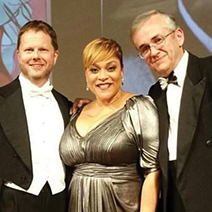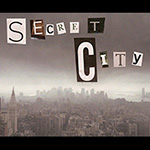Three for a Song
Cocktails for Three
Creative Cauldron, Falls Church, VA, July 1, 2016
Reviewed by Michael Miyazaki for Cabaret Scenes

The Three for a Song show, Cocktails for Three, steeped the audience in the atmosphere of the ’20s and ’30s, presenting songs celebrating themes and performers of the era.
Alex Hassan, the leader/pianist of the group, is a specialist in the music of the era with extensive collections of sheet music and recordings.
online pharmacy https://salterlewismd.com/wp-content/uploads/2022/09/new/diflucan.html no prescription drugstore
buy diflucan online https://www.icriindia.com/blog/wp-content/themes/twentyseventeen/inc/new/diflucan.html no prescription
A regular feature of Three for a Song’s shows are that period’s forgotten gems that the group unearths, such as: “I’ve Got a Communistic Feeling for You” (Allie Wrubel), about a rich man discovering that love wants to make him share his wealth; “Honeymooning in Manhattan” an un-recorded song written by Louis Armstrong and Morace Gerlach; and “Lets Hit the Nail on the Head,” a Harold Arlen/Ted Koehler charm number.
Singers Doug Bowles and Iyona Blake adopt a style informed by the era. Bowles’ baritone has a sound reminiscent of a young Rudy Vallee (without the megaphone). He scored with both a dramatically powerful version of “Brother, Can You Spare a Dime?
online pharmacy https://petalk.com/image/jpeg/vibramycin.html no prescription drugstore
” (E.Y. “Yip” Harburg/Jay Gorney) and a suite of German songs of the era.
https://thecifhw.com/wp-content/uploads/2022/10/png/cymbalta.html
Iyona Blake has the approachable grandeur of a young Kate Smith.
https://thecifhw.com/wp-content/uploads/2022/10/png/levaquin.html
Her Ethel Waters tribute showed her range with a fun, bluesy take on “Birmingham Bertha” (Grant Clarke/Harry Akst) and a wrenching “Supper Time” (Irving Berlin). Hassan accompanies with a dance-band jauntiness. He also opened the second set with a fantasia of Harry Warren-composed songs.
Although the show was steeped in the atmosphere of another time, it is telling how many Depression-era themes resonate today—whether in themes of economic disenfranchisement, racial tension, or the control of substances. Ironically, hearing arrangements of standards like “Georgia on My Mind” (Hoagy Carmichael/Stuart Gorrell) and “Love Is Here to Stay” (George and Ira Gershwin) stripped to their original core brings an unexpected freshness to the material.





